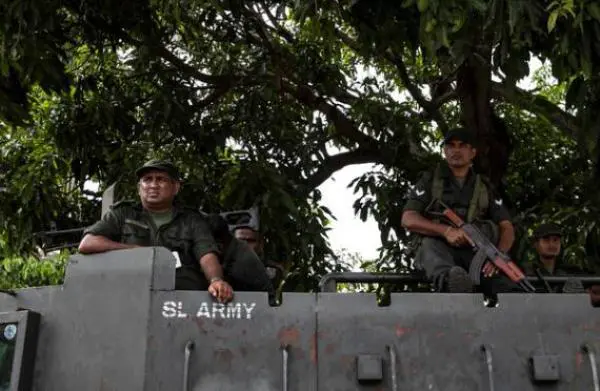China marked its third National Security Education Day on April 15, 2018. The paramount importance of national security again came into focus in the country. Why does the government take national security education so seriously during this peaceful era in China?
National Security Education Day was instituted in the National Security Law which was enacted in 2016, to create an occasion for all the citizens to be engaged in activities related to national security. Echoing the Chinese saying “be vigilant of dangers in the peaceful time” and “everyone has a share of national safety,” such activities, on a regular basis, are supposed to enable people to be alert towards national security, enhance their capability of protecting national security and create synergy of maintaining overall national security.
/VCG Photo.
National security concerns everybody. National security is basically defined as a condition in which a country's state power, sovereignty, unity, territorial integrity, people's well-being and sustainable economic and social development are relatively safe and not subject to internal and external threats. It could be associated with terrorism, separatism and religious extremism, and also linked with emerging cyberspace security, emergency preparation and global warming that might impact everybody’s work and life. Everybody could potentially contribute to or undermine national security, depending on his or her awareness of the issue and the capability to handle it.
Globally speaking, the overall direction of multipolarization of the world, the globalization of the economy and the democratization of international relations requires more distinct national identify and awareness of risks of terrorism, separatism and religious extremism. On the other hand, China is facing "ever-growing security challenges" in its increasing interaction with the world, involving fields such as politics, territory, economy, society, resources, cyberspace and others. It makes a real difference if the citizens have the competencies (knowledge, skills, values, and attitudes) concerning the national security or not, which are essentially the cornerstone of their well-being.
In particular, the Internet is now one of the nation’s fundamental infrastructures; everyone lives in cyberspace for work and life. Cybersecurity turns to be a universal issue and concerns national security and the rights and interests of citizens and organizations, hence people need to understand the rules and stay away from potential crimes and protect their personal information and security. Meanwhile, as the country increases its footprints in outer space, the international seabed, and polar regions, it is necessary for people to understand related laws and rules that protect these activities, assets, and personnel in the new frontiers.
Chief Executive of the Hong Kong SAR, Carrie Lam, attends the Hong Kong Seminar on National Security Education Day and delivers a speech, April 15, 2018. /VCG Photo.
Since the institution of National Security Education Day two years earlier, the government has taken an array of actions to help people realize that national security has a closer relationship with their daily lives in the new era. Learning and recreational activities in various forms have taken place in schools, workplace, and communities.
In 2016, the Ministry of Education has issued a notice on national security education to call the educational institutions across the country to implement national security education through activities, teaching, and publicity. In terms of activities, the Ministry of education has organized the “national security law learning week,” virtual (Internet-based) publicity of national security education day, safety education day and national university student cybersecurity competition. The national security-related content is also integrated into the curriculum for primary and lower secondary school students in such subjects as moral education, history, and geography, etc., and in courses on ideological and political theory as well as related professional courses for university students. Military training and thematic lectures have been arranged for upper secondary school students. Such activities are covered in newspapers, TV stations, on the Internet as well as social media.
The 2018 National Education Day speech contest is held at the Institute of International Relations, April 12, 2018. /VCG Photo.
Likewise, the governments at various levels have issued similar policies to scale up national security education. For example, in a program of “national security education in the classroom,” lawyers and professionals in the legal field are invited to give lectures in schools; whereas in its counterpart program for rural areas, national security education in households, education is delivered through seminars, performance tour, and handouts, etc. Similarly, thematic seminars are arranged in enterprises and public institutions. Social media are also applied increasingly in the mobile learning activities on national security, through websites, wechat, weibo, and other mobile apps.
Furthermore, national security education, in its narrow sense, means everybody gets acquainted and alerted to issues relating to national security as part of their life-long learning. In a broader sense, national security and quality education are closely tied together. It is key to train youth who are aware of China’s growth in global development and aspire to defend the country physically and in cyberspace.
(CGTN)
 简体中文
简体中文

